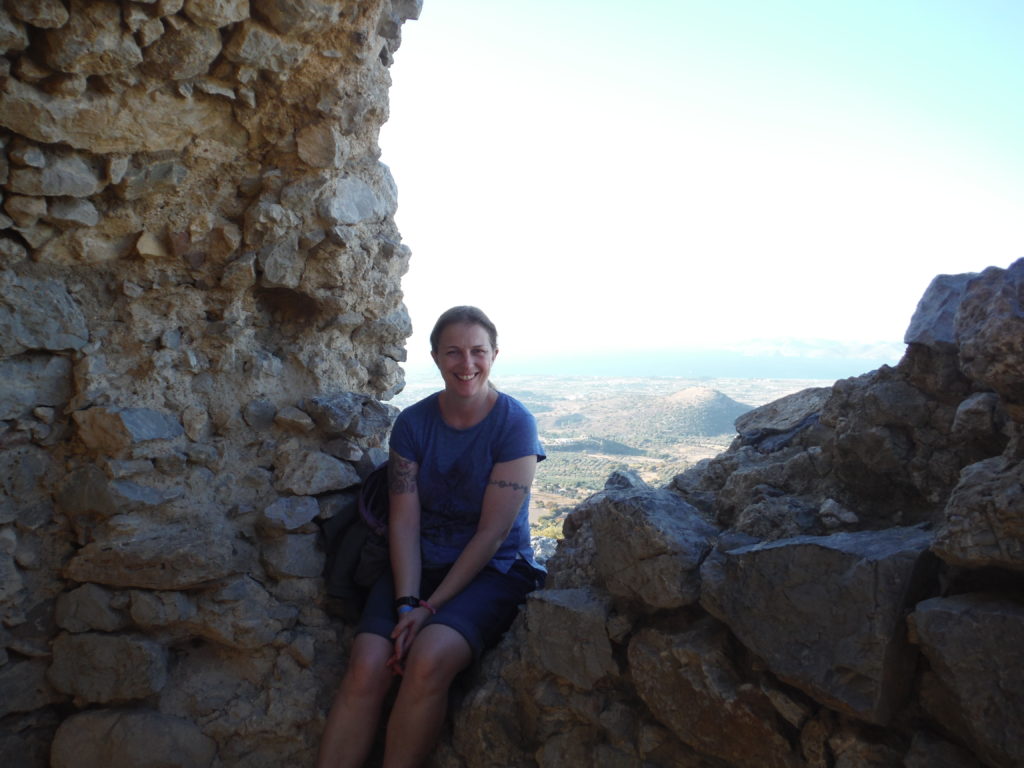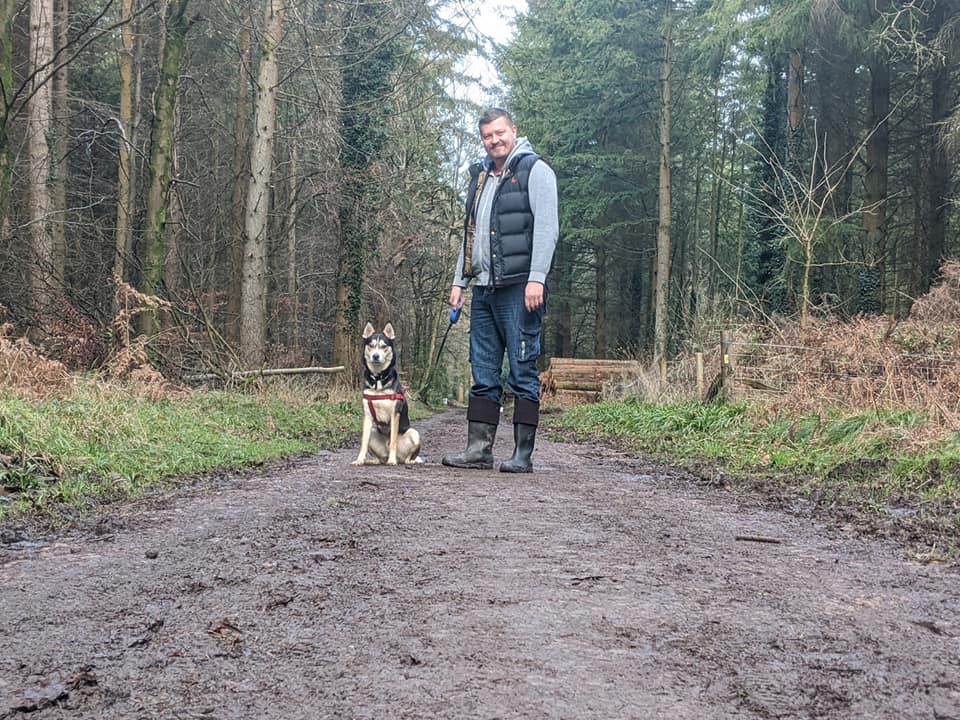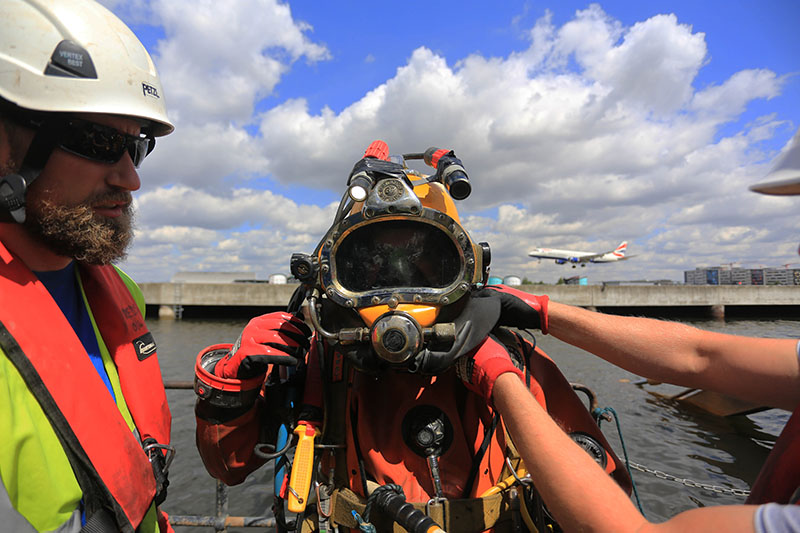How to thrive during coronavirus lockdown <br>(part 1)
SafeLane staff who've been bombed out in war zones and confined to tiny ships and cell-like spaces share their top tips to help you thrive (rather than just survive) during coronavirus lockdown. In part 1 we hear from some of our ex-Army personnel.
How to thrive during coronavirus lockdown: SafeLane staff who’ve experienced isolation give their advice
For many of us who are isolating or isolated - away from family, friends and colleagues - the prospect of the lockdown continuing with no end date can be daunting.
But there’s insight and comfort to be drawn from the experiences of those we know who’ve not just survived similar - but thrived during isolating experiences.
Meet some of the SafeLane staff who are helping their network stay positive thanks to the benefit of their own experiences.
Hopefully you too can take some constructive ideas and certainly some positivity from their suggestions.
Debbie Carr
A former Sergeant in the Royal Logistic Corps, Debbie served in Bosnia, Northern Ireland, Iraq and Afghanistan before joining SafeLane, where she was recently promoted to International Operations Support Manager.

“What’s always worked for me, no matter where I’ve served and what the environment has been like, is sticking to a routine. Don’t lie in, don’t let your standards slip. Get up and get going.
“Having that discipline and focus will keep you positive and busy…and make the time pass.
“Also, fitness passes the time – and you don’t have to go mad! If you have limited space or you’re not normally active, set yourself small, manageable goals.
“Don’t attempt an impossible weight loss goal, just challenge yourself to noticeably improve your current fitness level.
“Personally, I like running – but if the threat level was up and we couldn’t go outside safely, my colleagues and I would design little workouts for each other when we were on tours.
“I’m doing that now – remotely – with friends at SafeLane. We’d normally do HIIT together in the gym at work – but we can still motivate each other to increase the number of burpees, crunchies or press ups we can do at home.
“Keeping in touch regularly with family and friends – even if it’s just a WhatsApp check in or a quick Skype call, is also good for boosting everyone’s morale.”
Chas Reid
A former EOD operator in the Army, Chas is SafeLane’s Director (Marine).
“Get a dog, and if you can’t get a dog, get a hobby!
“Even if you’ve never had a hobby before, find one now. And even if you can’t get outside your accommodation, read or find a self-study course online.
“A lot of companies are offering free learning at the moment – so, challenge your brain.
“This will give you a focus, give you a chance to do something new, and it will tire you out so you can sleep well at night. Sleep well – and you’ll wake feeling better. It’s a virtuous circle.
“By keeping busy, you won’t have time to give in to negative thinking.”
Matthew Pszczola
Formerly a chef in the RAF who also played rugby in the Royal Air Force, Matt is SafeLane’s Operations Support Executive.

“I was quite badly injured whilst serving in the RAF – I had a back injury and ruptured my L3 and L4 vertebrae.
“The injury meant I had a long rehabilitation, and a lot of uncertainty about my future. It eventually led to me being medically discharged – but in the long period of living alone with pain and uncertainty, I found recipe planning and cooking to be a massive help.
“If I wasn’t able to physically cook, I’d watch all the popular cooking shows on TV or YouTube to build ideas – and I’d also binge watch Diners, Drive-Ins and Dives. If you’ve never seen it – stream it!
“Yes, there are a lot of greasy burgers on there, but you get flavour and ingredient combination ideas. Some of the food the programme showcases from the Caribbean and Asia is incredible.
“Now I’m putting all that research time to good use! I like to challenge myself to make the best food with whatever I can find at home. It’s a store cupboard challenge, and anyone can get involved.
“If you’re not a great cook, or you’re not sure what to do with a can of chickpeas, Google is going to be your best friend. You can find recipes for anything – and there are some great social media groups you can tap into as well.
“Why not share ideas with friends, have a virtual dinner party via Skype, or just play rate my plate over WhatsApp?
“Now more than ever I think good food is important. It’s fun to make, and great food is a personal mood lifter.
“If you can, you can also cook or bake for any neighbours who are self-isolating. By doing something helpful, even if it only benefits one other person, you’ll feel useful and by feeling useful you’ll feel more positive.”
Mark “Paddy” Smith
After a 10-year Army career, serving in some very interesting places, Paddy worked as a civilian in Afghanistan for a number of years before becoming SafeLane’s Senior Operations Manager. He's pictured here on the far right, with SafeLane colleagues Julian, Lucy, Bryony and Kobus.

“For a considerable period of time in Afghanistan I was inhabiting a tiny cell-like space in an inhospitable desert location - I didn’t see myself in a mirror for weeks at a time, we didn’t have toilets. So, it was pretty isolated and challenging!
“But there’s a reason human beings dominate the planet - it’s because we can change – we can adapt – we can get used to something and make the best of it.
“In my case, because I couldn’t go anywhere, I chose to make the best of my tiny space. It was very much a mindset thing – I made an active choice for the not normal to be my normal.
“So, whether you’re in a single room or a tent, a shared house or you have your own space, make it as nice as you can.
“That doesn’t mean going out anywhere to buy anything – it means, straightening things up, looking after what you do have.
“As soon as we go back to work, and we will go back to work, you’ll wish you had more time at home! It’s the way we are.
“My space was so small, I mixed it up by facing one way to do work, facing another way when reading a book, and facing another way when sleeping. Compartmentalising. It works.
“Later I was in shared accommodation and there was a joke, on tour you either became a monk, a skunk, a chunk, a hunk or a drunk!
“In other words, everyone has different coping strategies, and some are healthier than others! The ones who seemed happiest were the monks who meditated and the hunks who worked out…maybe try it!
“The other thing I highly recommend is giving anyone you live alongside their space – even if all you can give them is quiet headspace. Tensions build – we all need that room around us to relax.
“And if tensions look like boiling over and you can’t flounce off and slam the door, you’re going to want to talk it out.
“Two final points…for most people I would say forget grand schemes, have modest ambitions instead! If you set yourself a massive goal like losing 2 stone or renovating a room and give up, you’ll feel like a failure and feel guilty for not achieving something.
“Guilt is a negative emotion you can do without. Have smaller, more achievable ambitions – even if that’s just getting up and dressed each day!
“Lastly, constant news is BAD. Thinking that the end of the world is nigh is going to do nothing for your wellbeing and is entirely pointless.
“Limit what you’re reading and consuming – be aware, certainly, but don’t focus.
“Everything is relative; we are always in this world of ours wishing stuff to be different – and you’ll be back at work before you know it, missing the quiet time you had at home or out on project.”
In part two we hear from the likes of Gilly - who was bombed out and trapped in Lebanon, Ryan - who confined to a tiny space for two months at a time offshore, and Steffen who was trapped in Sierra Leone because of Ebola.
Find out how we can help you


